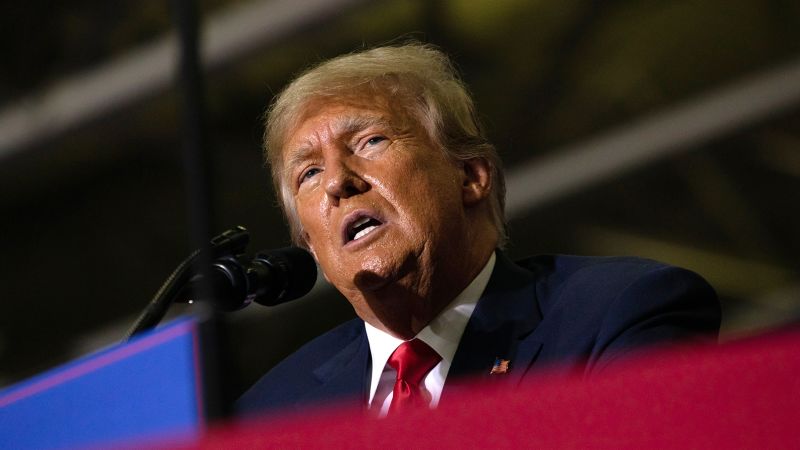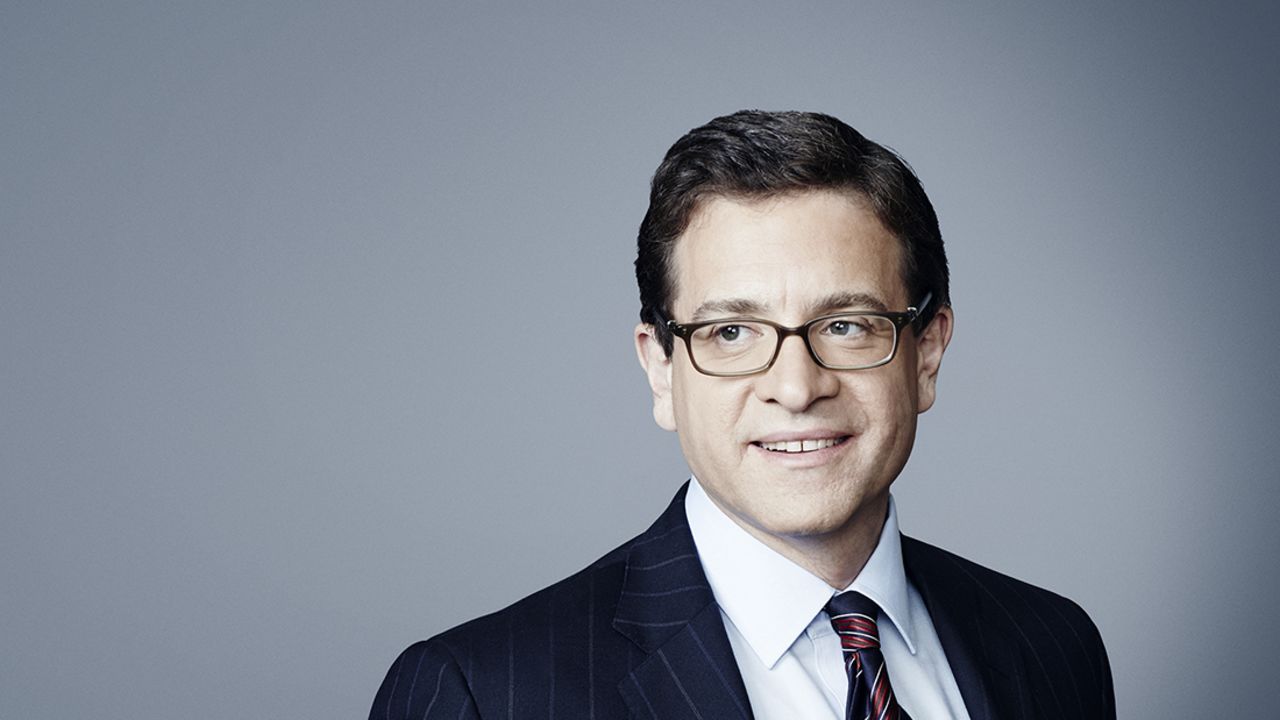
Editor’s Note: Julian Zelizer, a CNN political analyst, is a professor of history and public affairs at Princeton University. He is the author and editor of 25 books, including the New York Times best-seller, “Myth America: Historians Take on the Biggest Lies and Legends About Our Past” (Basic Books). Follow him on Twitter @julianzelizer. The views expressed in this commentary are his own. View more opinion on CNN.
CNN
—
The news of a potential indictment would likely derail most presidential candidates.
But former President Donald Trump isn’t most presidential candidates, and we’ve seen him thrive in politically challenging environments before.

Ever since Trump announced last week that he would be indicted in New York, where a grand jury has been hearing evidence about an alleged scheme to falsify records to conceal hush money payments to an adult-film star, we have been waiting to learn his legal fate.
But it seems New York is not his only cause for concern. Trump’s legal troubles could be ramping up elsewhere, with an appeals court ruling that Trump’s defense attorney must testify before a grand jury investigating the handling of classified documents found at Mar-a-Lago and Georgia prosecutors considering potential racketeering and conspiracy charges in connection to his attempt to overturn the 2020 election in the Peach State.
However, it’s worth remembering that the former president has already survived two impeachments, numerous investigations and countless controversies before. Given what he’s gone through, and how he’s established his political persona, an indictment that might end other political careers is not an inevitable body blow for Trump.
In fact, numerous commentators, including Democratic officials, are rightly speculating that an indictment in the New York case could end up strengthening Trump’s hand going into 2024. Based on this perspective, it was not surprising that Trump himself announced (incorrectly) on Truth Social that he would be arrested on Tuesday, calling on his supporters to protest such a move. Privately, according to the New York Times, he has been considering how a “perp walk” might be perceived.
And while Trump’s political brand has struggled in the past few months, recent polls show him leading the pack of potential Republican presidential candidates — with a significant gulf between him and Florida Gov. Ron DeSantis.
So, why might Trump gain further strength if he is indicted?
Trump’s legal troubles play directly into the ways he has packaged himself as a politician. For one, Trump thrives on media attention. This is his major weapon in political combat. He loves to dominate the news cycle, redirect national conversations, lash out at his enemies and eclipse all other issues. Trump, who has an instinctive feel for the rhythms of cable television and social media, did it again this week. As war rages in Ukraine and US officials try to contain a potential fallout in the banking sector, there’s been considerable coverage of his possible arrest after his Truth Social post this weekend.
It doesn’t seem to matter that much of the attention is negative. As president, reality television star and real estate mogul, Trump has cast himself as a fighter who has warded off individuals and institutions that he claims are out to get him. This is an essential part of his political persona: the aggrieved public figure who is at perpetual war with the world around him.
In a manner that would make President Richard Nixon supremely jealous, Trump knows how to weaponize attacks like nobody else, turning on his opposition and making the case to supporters that his adversaries are the ones who are abusing power. He used this strategy with former Democratic presidential candidate Hillary Clinton (“Crooked Hillary”), the media (“fake news”), former FBI Director James Comey (“Slippery James Comey”) and former Special Counsel Robert Mueller (“rigged Mueller Witch Hunt”), to name a few examples. Trump went even bigger when he took aim at the entire election system after Joe Biden won the presidency in 2020. Most recently, he called Manhattan District Attorney Alvin Bragg a “woke tyrant.”
Trump uses this to connect with Republican voters, many of whom are White men in rural areas who feel as if the world has left them behind. This allows Trump — a man of wealth, power and privilege — to paint himself as being “anti-establishment,” a message that continues to resonate in a post-Watergate America. As a result, Trump relates to his supporters, making the case that he is fighting against the forces they are up against as well.
It appears Trump’s strategy is still effective, as Republicans have rallied to his defense in a Pavlovian fashion. The airwaves this past week have been filled with Republicans playing their familiar roles. It only took a few days after Trump’s social media announcement for Republican Rep. Jim Jordan of Ohio to further weaponize the House Judiciary Committee by calling for an investigation into Bragg. House Speaker Kevin McCarthy, seemingly unable to separate himself from Trump, accused Bragg of unfair treatment, saying, “Lawyer after lawyer will tell you this is the weakest case out there, trying to make a misdemeanor a felony.”
And then there is a part of Trump that has always loved the tough-guy, mob boss image. Professional wrestling fans will remember the gusto with which he embraced the fighting spectacle and the connections he forged to the world of professional boxing. As someone who rose to prominence in New York in the 1970s and 1980s, he is not deterred by the idea that many Americans are more likely to see him as a character out of “The Godfather” or “Goodfellas” than someone who belongs in the West Wing.
As I wrote in 2016, this suits the cultural era of the anti-hero and allows Trump to revel in the tough bravado that comes with that role. And shortly after he entered the Oval Office, he surrounded himself with military officials who bolstered his image as a man of strength.
To top it all off, Trump, who does not seem to feel any sense of shame, appears to have insulated himself from the psychological pressure that others might feel to step down in the face of controversy and scandal.
Put all of this together and it becomes easier to understand why an indictment might not be the worst thing to happen to the former president. It must also be said that an alleged relationship with a porn star, which Trump denies having, may no longer be an automatically disqualifying issue the way that it used to be. It’s also worth noting that this allegation about his personal life seems to pale in comparison to the full-throated campaign to reverse the will of the electorate and undermine our democratic system in 2020.
Whether or not someone benefits from an investigation or indictment should have no bearing on those who work on behalf of the law and the Constitution. And regardless of the outcome of the many investigations, they are — contrary to what Trump may claim — worthy pursuits of justice.
Ultimately, voters can still respond how they like in 2024, since an indictment or conviction would not bar Trump from becoming president again. While there are many factors that will determine whether we can reestablish the many guardrails that have disappeared in American politics, the electorate will be of utmost importance when it comes time to decide who should be given the responsibility of inhabiting the Oval Office.
On Election Day in 2020, Americans proved that Trump could be defeated. If an indictment, or several indictments, come down in the next few months, voters — not courts and not prosecutors — will once again be the ultimate judges of his political fate.

